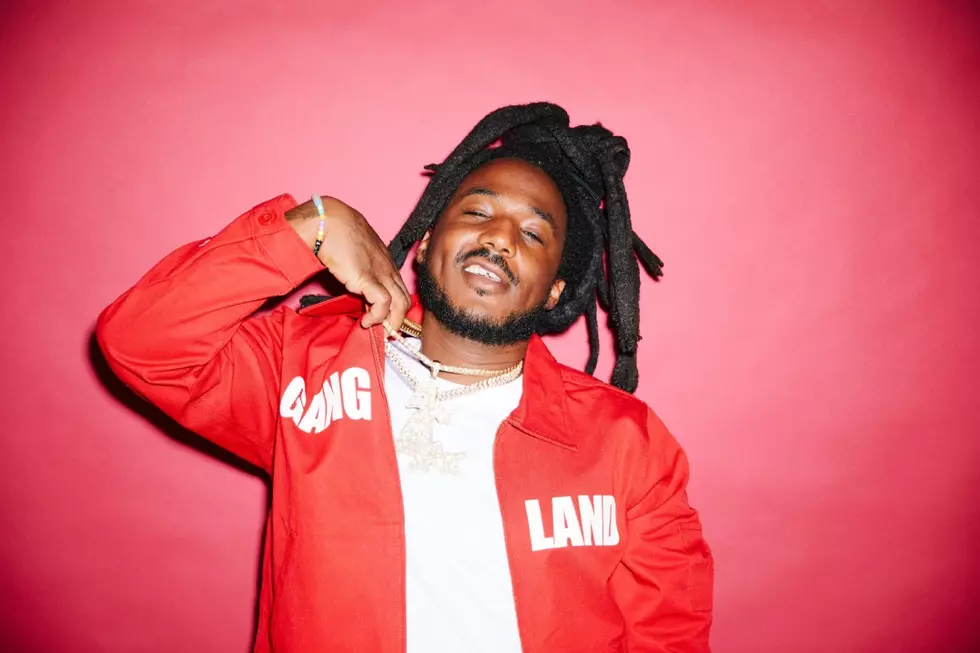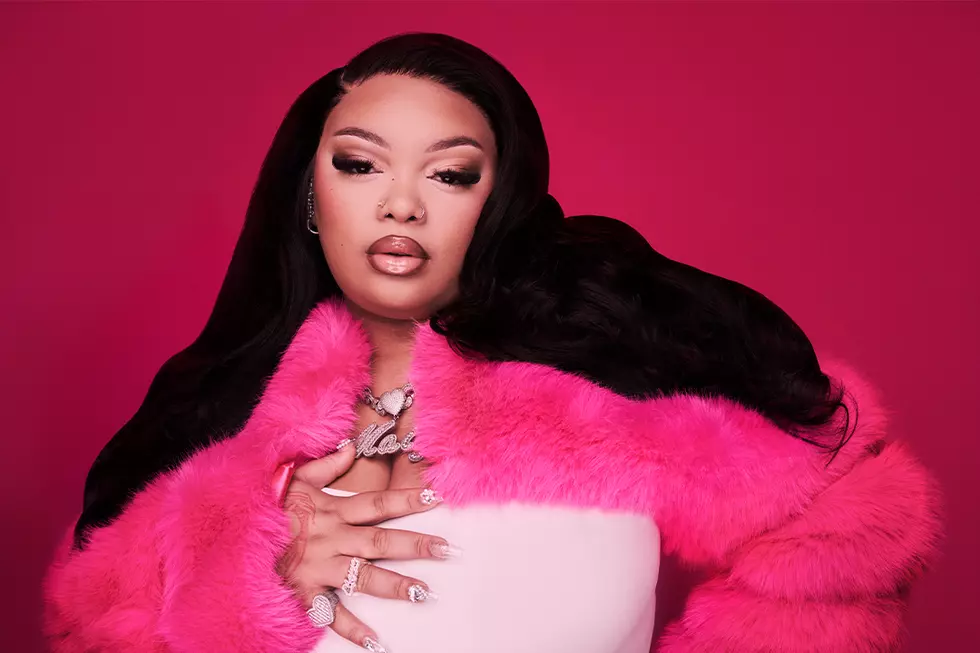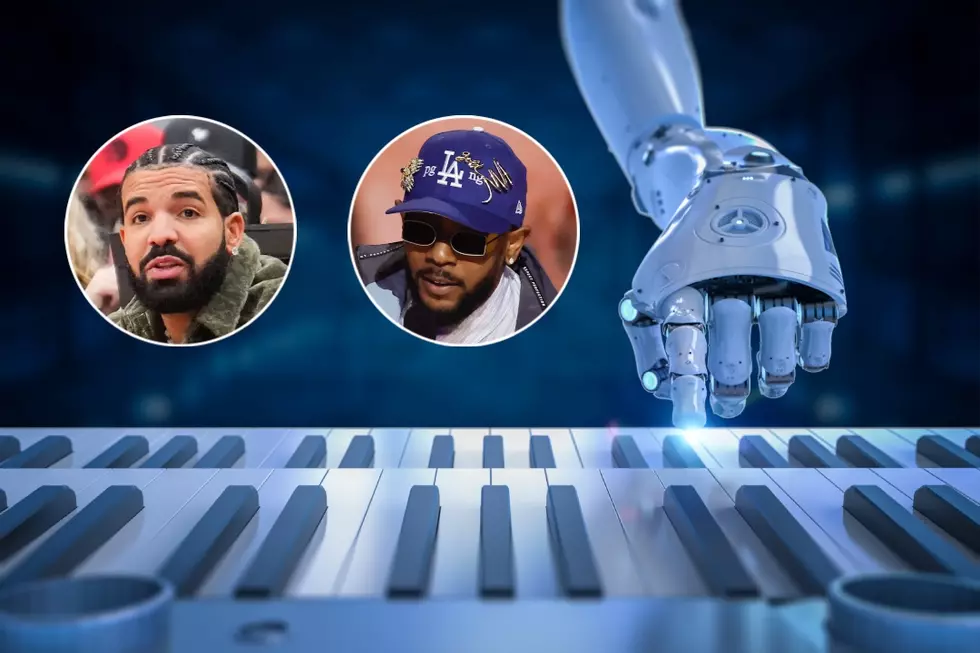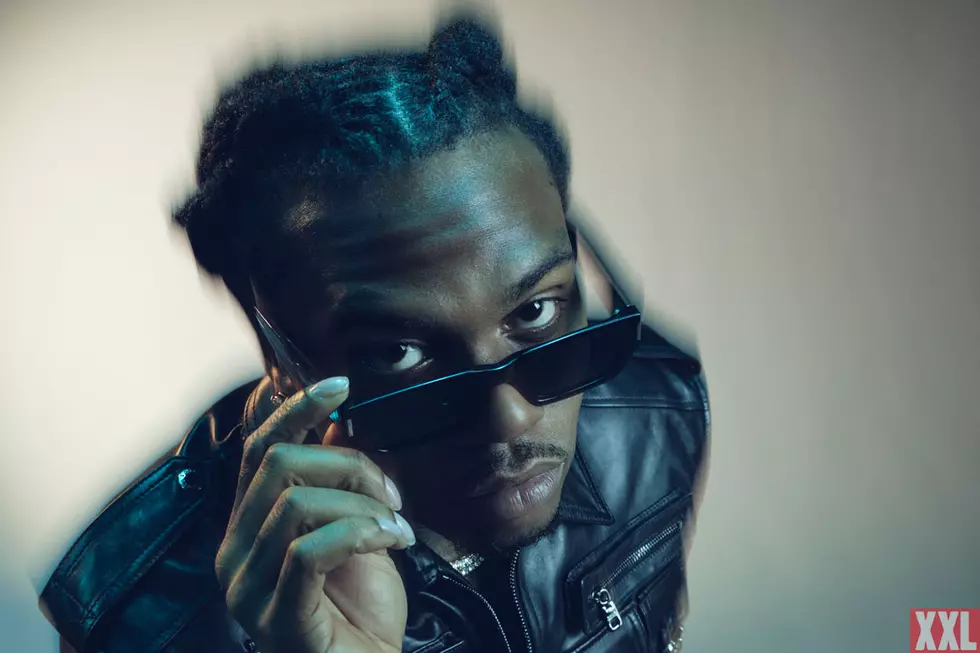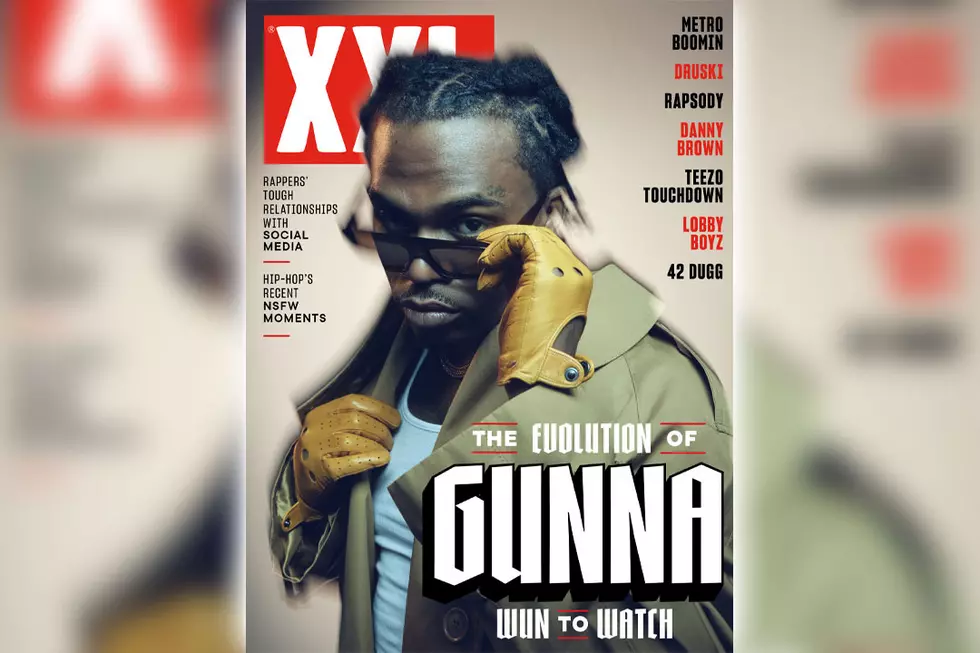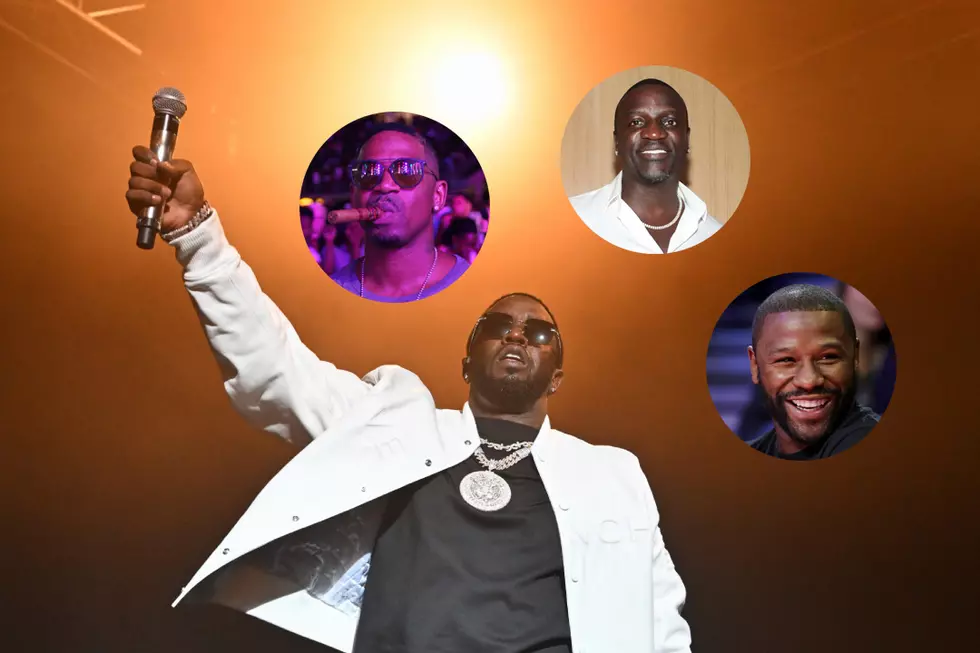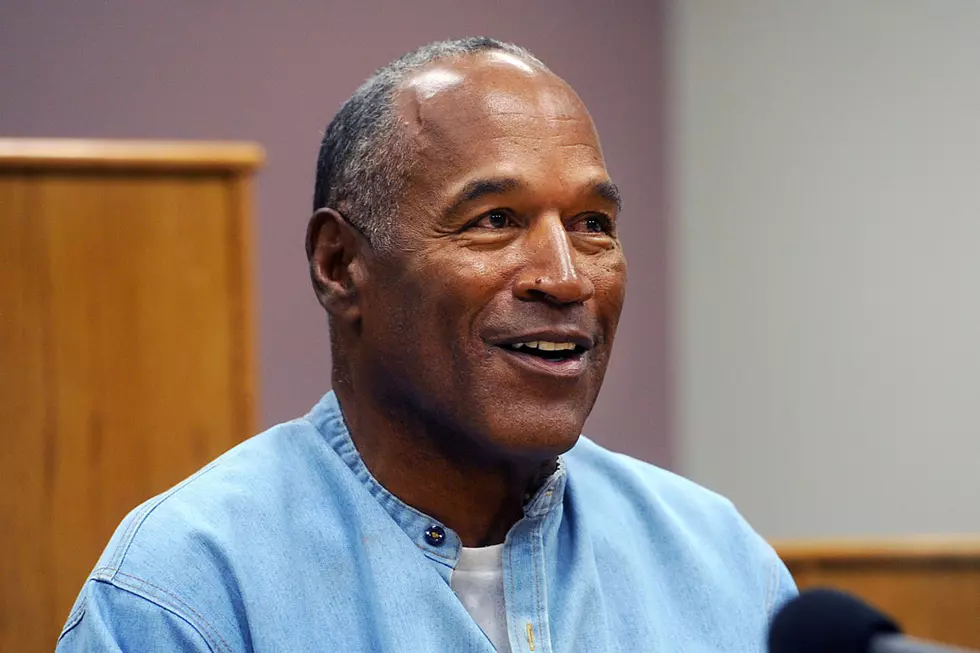
The Come Up: Sir Provides Music for the Soul
The lines between R&B and hip-hop are more blurred than ever before. These days, there are rappers who harmonize and singers who try to spit a hot 16, which means putting a label on them is no easy task. The blending and introduction of new sounds is what makes music exciting, but the danger lies in people climbing on the bandwagon because its trendy. Few artists find great fame by dancing between genres while others attempt to follow suit, riding the ship the size of Noah's Ark to find success. But, there are artists who walk to their own theme song. For SiR, a 29-year-old singer-songwriter from Inglewood, Calif., the theme song for his life is soul.
SiR is as mysterious as he is talented. The West Coast native has tremendous energy whether it's onstage or off, but besides that, the information is limited. He quietly put out one of the best projects of 2015 with his breakout album, Seven Sundays. Everything about the LP was incredible; the soulful production from producers like J.LBS, Iman Omari, Knxwledge, Tiffany Gouché and many more, the moving, intricate lyrics that delve into the male psyche, the cohesiveness, the out of focus photo used as the cover art, which is another nod to his cryptic nature. Seven Sundays was a complete body of work different from much of what was out at the time. It's insane to know that someone this talented stopped making music to play sports for the better part of his young adult life.
Growing up in Park Circle, a small area in Inglewood, SiR was raised in the church by a family of musicians. The singer, along with his two brothers, would perform at the nearby church where his mother served as the minister of music —she's still there till this day. As he got older and turned to basketball, his brothers stuck to making music, becoming musicians and songwriters. Though he was balling, they inspired SiR to take music seriously and got him his first job as a engineer for Tyrese in 2012. From there, he would build his songwriting resume, adding names like Jill Scott, Glenn Lewis and Anita Baker to the list. SiR would later go on to work on collaborations with Big K.R.I.T., Jay Rock and Isaiah Rashad.
After Seven Sundays, prominent record labels started to call and so did a ton of big time artists. But SiR didn't choose to chase fame; he'd rather focus on the music. Last month, he released a beautiful six-song EP titled Her, which was inspired by his wife, Kelly.
While in New York City, SiR stopped by XXL to discuss growing up in the church, leaving music behind to ball and Seven Sundays. Plus he explains why he wants to bring soul back to hip-hop and R&B.
XXL: What did you grow up listening to?
SiR: I grew up listening to gospel, a lot of Stevie Wonder, neo soul, Jill Scott, Musiq Soulchild, Glenn Lewis and hella rap. West Coast head so I listened to a lot of Snoop, my favorite rapper was Jay Z when I was growing up. Probably still is till this day. My spectrum is pretty wide.
Your favorite rapper being Jay Z and you being from the West Coast is interesting. How did that happen?
I was just attracted to [Jay Z’s] swagger like most people were. Jay Z just emits pure confidence. When you listen to him you feel like you’re him or close to it. It was just something that I just gravitated towards, I can’t explain why, especially being from the West Coast it may sound strange [laughs]. Reasonable Doubt was the first Jay Z I heard and I was hooked after that.
How you get into music?
I grew up in the church so my mother has been the minister of music at our church for 27 years. Still works at the same church. When I was 3, that was the first time I had to get up and sing in front of the church. Me and my brothers, we’re all real close in age, when we did that.
I stopped doing music for a long time. Everyone in my family does music. My uncle plays bass, my grandma sings, all her kids sing and all they kids sing. When I was in high school I just didn’t want to do music. I probably got serious about it in 2010, 2011, and I put my first project out in 2012. It was just all over the place. It was like 18 songs, mixed and wasn’t mastered.
What sparked your return to music?
My brothers are the real reason why I started to take it seriously because they started to write songs back when we were out of high school. They found some success and got signed to Warner/Chappell Music. That kind of motivated me to at least give it a shot and it paid off.
What made you stop doing music?
I wanted to hoop. I thought I was going to the NBA [laughs]. When I was younger, it just wasn’t cool to be a singer. If you wasn’t rappin’ or gangbangin’, where I’m from you just weren’t cool. That was big. When you were a kid you just wanted to fit in. So [music] just didn’t seem like something I would like. But as I got older, I started to realize no matter what I did that was a part of me. I couldn’t run from it. I like to say it was God putting me right where I was supposed to be. And I decided to listen one day and it worked out.
Wow, basketball was that big for you back in the day? What position you play?
I played point guard; a power point guard with a small forward's thinking. My dad is 6 feet, 5 inches so in high school I thought I was going to be 6 feet, 7 inches. My ninth grade year I’m small forward so by the time my senior year came around I realize I wasn’t going to grow anymore. I was the point guard on our team and we made it to CIF, we made it to state championships and played in the tournament. I thought I had it back then. I laugh when I look back now because, man, I was not that good [laughs]. I still play till this day in the gym.
You play against people that are in the league now?
Yeah, I played against Jordan Farmar. I think we played Russell Westbook. I’m a year older, he graduated 2005. I think my senior year he was playing varsity but he wasn’t like their starting point guard. I know I played his team. I played Arron Afflalo a few times, and then like my school is the same school Paul Pierce went to. So I used to see him all the time. He would do camps back in Inglewood.
What’s another fun fact you got?
I love to cook. I cook a lot. Fried chicken [is my best dish] and I make chicken fettucini or red sauce. Me and my wife do a lot of cooking.
So 2011, you’re back with music, then 2012 is your first project. After that you did what?
I did Long Live Dilla. After I put out my first project I started to write songs for other people. Dilla just came because it had been a while since I did my own music. Songwriting is a weird game. You can write 300 songs and get one placement. I just had a pile of music stacking up and I wanted to start pointing back in the direction. DK The Punisher just decided that we’re going to do something that we liked. It didn’t have to be commercial. So we figured a tribute to Dilla would be perfect, drop it February and it worked out.
How does someone actually get into songwriting, let alone get placement?
Well, it’s tricky. It’s not like there is a specific process. I started off as an engineer. When I started to take music seriously, I went to school and graduated from L.A. film school. After that my first real gig was engineering for Tyrese and that was just such a learning experience. Just seeing how many writers came and went, his process and at the time I was still writing but just writing songs for myself. And it turned out he didn’t mind that I wrote songs and engineered so I had an opportunity to write for him.
And that’s how I got my first real action at writing for Tyrese but even before that my brothers were signed through Warner/Chappell through a relationship my uncle made. So it’s a lot about relationships, just like in any other industry. But it's also about consistency with the songwriting. You have to have 100 songs at all times you can shop. For me, it kind of worked out for me engineering to meeting the right people. Working for Tyrese I met Andre Harris from Dre and Vidal, and from them I started working for Jill Scott and from her I met Anita Baker. I met Glenn Lewis through Dre and kind of spread out and made my name amongst people that I respected.
Seven Sundays was one of the best-written projects I heard in a while. One record in particular, “He Deserve Your Love,” was incredibly poignant because that’s something most dudes deep down feel but can’t say. How do you write something so moving?
I start with a thought. I try to keep it as simple as that. The best songs I ever listen to, it’s like they’re saying the same thing for three minutes but they’re figuring out a way to paint a beautiful picture. But it’s all based around the same thought. And that thought for that song, as an example, was, yeah, I’m not good for you. The thought is the title. So I start with that and build around it. From there it just kind of falls into place.
Your sound is incredible, man. How would you describe it?
Soulful with a hip-hop twist. I don’t know. I gotten compared to like The Weeknd, which I don’t get. I take that as a compliment because a lot of time when people are misguided they just compare that to the most popular or what they like the most. I don’t take that as a negative thing. I’ve [been compared to] Music Soulchild, John Legend, real soulful cats. The best compliment that anyone has ever paid me is I don’t sound like no one.
So what’s your goal in music?
I don’t have a goal in music. I just like to create music; longevity if anything. I’m a studio rat. Right now the vibe is not too soulful, it’s a trap vibe. That’s hip-hop right now especially hip-hop R&B, it’s trap. So I just want to change the movement. I want to give my own personal vibe. I think that’s the best thing about what I do. I don’t try to do what anyone else is doing. I try to stay as true to me as possible. So if I can continue to do that and find some success in that then I’m all for it.
What’s next for Sir?
You got to wait and see. Big tings.
See 11 Moments Rappers Were Good to Their Fans
More From XXL

